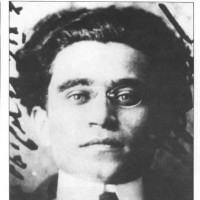La France meurt de l’hégémonie marxiste, by Guy Milliere
Voici une dizaine de jours, c’était le premier anniversaire de la présidence de François Hollande. Triste anniversaire.
Ceux qui voudraient mettre quoi que ce soit à l’actif du « Président normal » auraient bien des difficultés à trouver quoi citer. L’endettement du pays continue à se creuser. Les chiffres du chômage poursuivent leur ascension. Les pauvres se multiplient, comme toujours lorsque les socialistes sont au pouvoir. Les projets fiscaux les plus ineptes énoncés lors de la campagne électorale n’ont pas vu le jour, mais la fiscalité ne s’en est pas moins trouvée alourdie. L’ombre de la duplicité et de l’hypocrisie, qui s’est déployée avec l’affaire Cahuzac, ne cesse de projeter ses effets de délégitimation.
C’est sur ce fonds malsain que se sont déroulé les manifestations contre la seule « réforme » que François Hollande ait vraiment menée jusqu’au bout : celle du mariage.
La dimension de destruction de la famille qui s’y love a suscité un vaste mouvement de rejet qui n’aurait sans doute pas acquis cette ampleur s’il n’avait pris appui sur une inquiétude plus large.
En sa grande majorité, la population française perçoit que le pays est en déclin et que le déclin s’accentue jusqu’à ressembler à une maladie en phase terminale.
La perception du déclin, visible dans tous les sondages, s’accompagne d’un désarroi, d’une angoisse, d’une dépression collective tout à fait explicables.
Sans doute parce que nous sommes au printemps, certains ont vu dans les réactions de désarroi, d’angoisse et de dépression collective les traces d’un « printemps français ». J’aimerais penser qu’ils ont raison, mais je dois dire que je suis circonspect.
Il ne se dessine, en effet, aucun sursaut, aucune esquisse de perspective.
Les gens de gauche pensent, pour la plupart, que François Hollande n’est pas assez à gauche, autrement dit qu’il n’a pas été assez loin dans la progressivité fiscale, et ils sont plus que jamais enferrés dans la débilité envieuse qui les conduit à considérer qu’il suffit de s’en prendre aux plus entreprenants pour que tout aille mieux. Nombre de gens de droite sont porteurs de propositions teintées des mêmes idées stupides.
Les explications de l’évolution économique planétaire, des paramètres de la globalisation, de la croissance qui se poursuit ailleurs sur la planète, et qui ne déserte que le continent européen, sont absentes.
Le vieillissement accéléré que connaît l’Europe, les incitations qui sous-tendent les flux migratoires complexes qui strient celle-ci et en font fuir les porteurs de capital intellectuel, ne sont jamais évoqués.
La France, comme une part majeure du continent européen, est soumise au règne absolu d’une hégémonie marxiste, anticipée par le communiste italien Antonio Gramsci dans les années 1930. Gramsci pensait que le capitalisme, dans la première moitié du XXe siècle, était en position hégémonique. Il préconisait une longue marche des adeptes du dogme marxiste dans toutes les institutions, jusqu’à ce que l’hégémonie capitaliste soit remplacée par une autre hégémonie, marxiste celle-là.
Il précisait que, lorsque cette hégémonie marxiste serait en place, une irréversibilité serait atteinte. Tous les débats alors, disait-il, auraient lieu au sein de l’hégémonie marxiste ainsi instaurée et sur son horizon. Toute possibilité de raisonner à l’extérieur de l’hégémonie marxiste serait condamnée à être marginalisée. Des mouvements de colère contre l’hégémonie marxiste instaurée pourraient encore exister, mais ils ne pourraient plus se doter des paramètres indispensables pour constituer une alternance.
Read the complete article in Les 4 Vérités
Stéphane Courtois, Jean-Pierre Deschodt, Yolène Dilas-Rocherieux (dir.) : Démocratie et Révolution. Cent manifestes de 1789 à nos jours, by Christophe Réveillard
A propos de Stéphane Courtois, Jean-Pierre Deschodt, Yolène Dilas-Rocherieux (dir.), Démocratie et Révolution. Cent manifestes de 1789 à nos jours, Cerf/Presses universitaires de l’ICES, coll. Démocratie ou totalitarisme, 1 195 p., 2012, 42 €.
Il s’agit dans cet ouvrage de l’étude de cent manifestes fondateurs, inédits, oubliés ou atypiques, lesquels constituent le résumé de deux cents ans d’histoire des idées politiques. Leur nature est extrêmement diverse mais leur objet unique : Déclaration des droits de l’homme et du citoyen, manifestes communistes et socialistes, tracts anarchistes, manifestes esthétiques Dada ou futuristes, programmes d’Hitler et de Mussolini, encycliques de Pie XI, déclarations de la Guerre froide, charte altermondialiste, manifestes féministes, des Frères musulmans, de la contre-culture hacker ou transhumaniste… Depuis la Révolution française, deux mots, deux notions, deux grands courants de pensée et d’action hantent le monde, tantôt naviguant de conserve, tantôt s’affrontant violemment : démocratie et révolution.
Read the complete article in Revue Catholica
Solzhenitsyn’s Prophetic Voice: Biographer Joseph Pearce Discusses Critic of Communism, by Annamarie Adkins & Joseph Pearce
After the fall of the Berlin Wall, some people predicted that global affairs had reached “the end of history” and that democratic capitalism had definitively triumphed.


